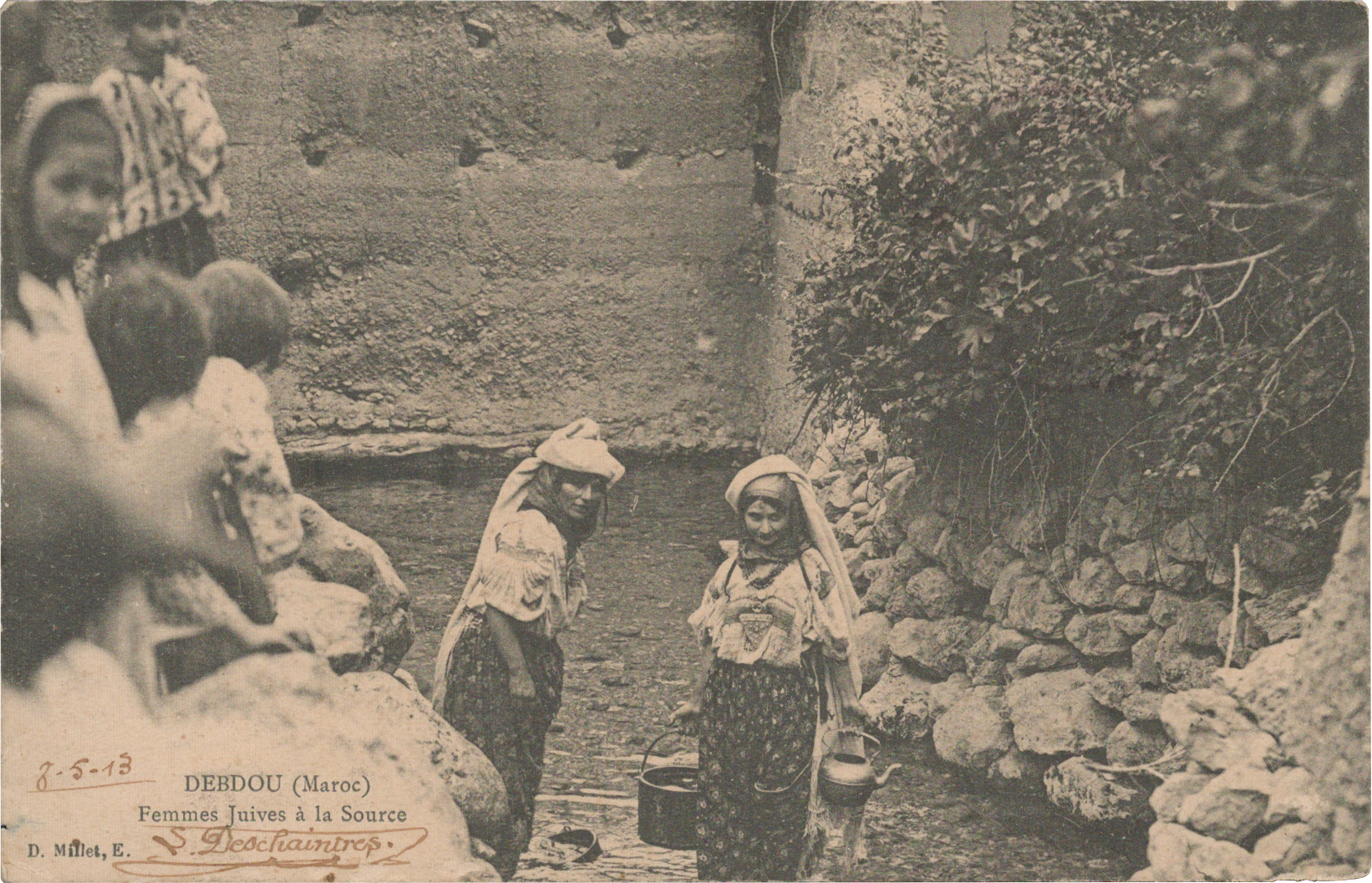Jewish Women at the Spring
Debdou (Morocco). Jewish Women at the Spring. Published by D[ominique] Millet. The card bears the handwritten date 2 May 1913.
A comparison with some of the remarkably few other postcards showing scenes from Debdou strongly suggests that Jewish women did not ordinarily dress up in this way and wear this much jewellery when fetching water from the spring. Here, as so often, the conceit of wanting to show “typical” members of a specific group has evidently led to a representation of Jewish life that, at least in terms of the clothing, is in fact far from typical.
Please support our work by buying one of our books.
Debdou is a small town located roughly 130 kilometres inland from the Mediterranean and southwest of Oujda, respectively, and 180 kilometres east of Fez. Sephardi Jews settled there following the forced conversion campaign of 1391 and the expulsion of 1492. Debdou was unusual in that the Jews then consistently formed the majority population until the political pressures emptying North Africa of its Jewish populations made their position too untenable and the Jewish Agency facilitated the aliyah of the remaining 1,000 or so Jews. This makes it all the more remarkable that so few postcards showing images of Debdou’s Jews or Jewish institutions are currently available in a marketplace that is awash with huge numbers of postcards covering other prominent areas of Jewish settlement in North Africa. The Jews’ majority status made Debdou an important centre of Jewish learning and culture and the town was well known especially for its scribes who produced Torah scrolls for numerous Jewish congregations in northern Morocco and Algeria. From at least the 1870s onwards, Debdou’s Jews were exposed with some regularity to threats, extortion and outright violence from Muslims living in the region, and the attempts of the Alliance Israélite Universelle to intercede on their behalf seem to have borne little fruit. Consequently, the Jews in Debdou warmly welcomed the arrival of the French in 1912, given that they subsequently guaranteed their safety.

